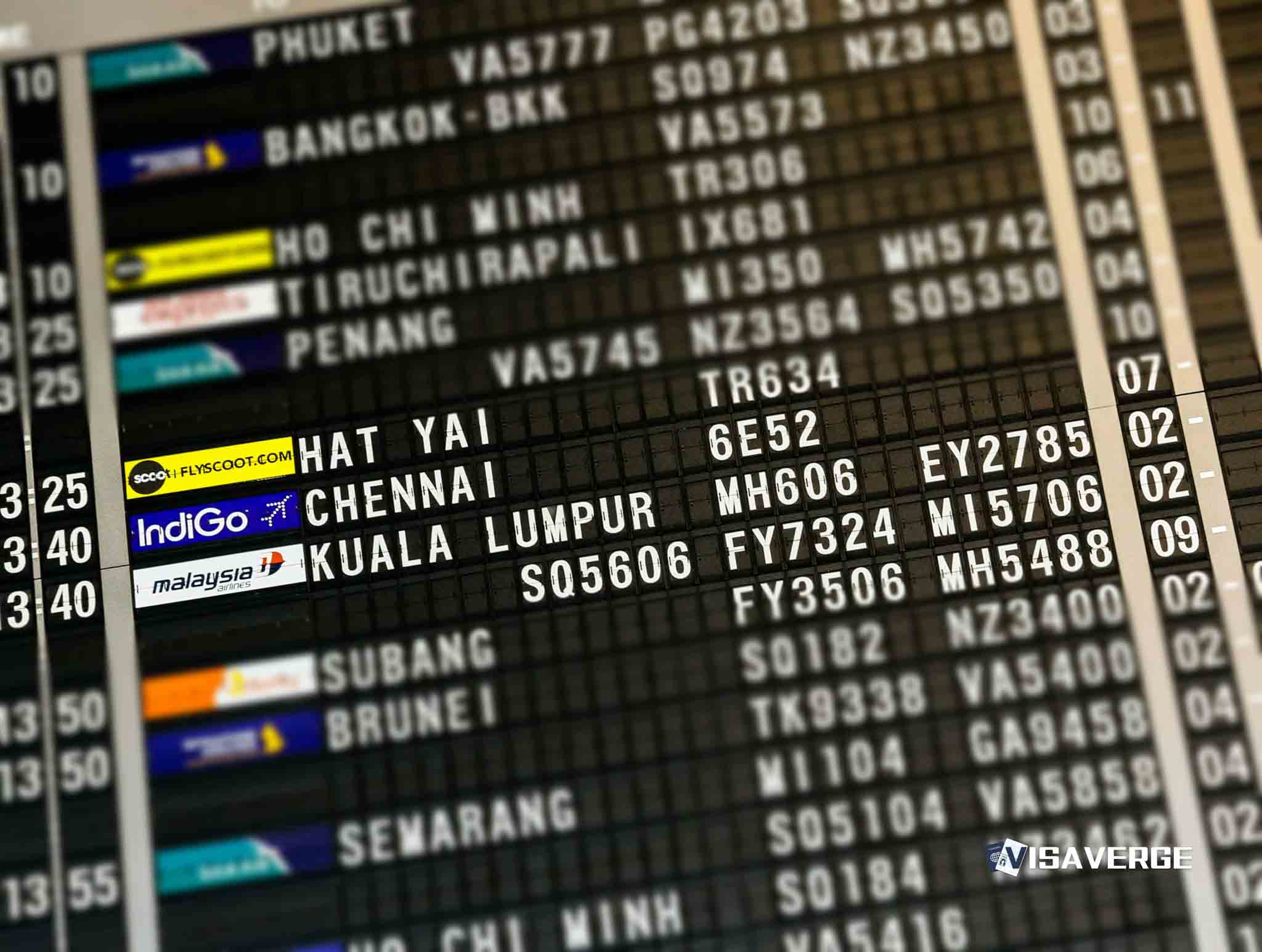(UNITED STATES) Parents who complete naturalization often ask what that means for children who hold Overseas Citizen of India (OCI) cards, especially when the family balances ties to both the United States 🇺🇸 and India. The core issues involve how and when a child may gain U.S. citizenship under the Child Citizenship Act, what an OCI card actually provides, when to show proof of renunciation of Indian citizenship, whether OCI equals dual citizenship, and what to do about passports and travel.
Officials and attorneys say timing, documents, and clear expectations matter most, because each step affects school plans, travel schedules, and the family’s sense of identity.

How children can become U.S. citizens
Under U.S. law, some children born abroad gain citizenship through their parents via two separate pathways:
- Acquisition at birth
- A child may acquire citizenship at birth if at least one U.S. citizen parent meets rules about physical presence in the United States before the child’s birth.
- Automatic citizenship under the Child Citizenship Act
- Children under 18 who are already lawful permanent residents (green card holders) and have at least one U.S. citizen parent can automatically become U.S. citizens once all conditions are met.
- Conditions include living in the United States in the legal and physical custody of the citizen parent.
These rules run alongside parents’ naturalization timeline, so the exact moment a child becomes a U.S. citizen can vary based on the family’s status and residence. For official guidance on acquisition and automatic citizenship, see the U.S. Department of State at https://travel.state.gov.
What an OCI card is — and is not
- OCI is a long-term, multiple-entry travel document that allows visa-free entry to India and grants certain benefits such as permission to study and work there.
- OCI is not Indian citizenship. OCI cardholders:
- Cannot vote
- Cannot hold public office
- Do not have full citizen rights in India
This distinction is critical for families who might assume the OCI card secures two citizenships. It does not.
Eligibility, document upkeep, and passport rules for OCI
- Eligibility: Minor children typically qualify if both parents are Indian citizens or if one parent is an Indian citizen.
- Why parents apply: To keep Indian roots open for visits, education, or family care.
- Travel requirements: OCI cardholders must carry both the OCI card and a valid foreign passport when traveling to India.
- Passport updates and OCI reissue:
- Update the OCI record whenever you get a new passport.
- A full OCI reissue is generally required once after the cardholder turns 20 and receives a new passport.
- Before age 20, use the update process for new passport details rather than reissuing the OCI card each time.
Renunciation: a strict documentation rule
One sensitive legal requirement is renunciation.
- If a person ever held an Indian passport, authorities require proof of renunciation when applying for OCI.
- A Renunciation Certificate is compulsory for former Indian citizens. Officials can hold or deny OCI applications without it.
- Parents sometimes assume a child born abroad never had an Indian passport; others discover an old baby passport later. The rule is simple:
- If the child ever held an Indian passport, submit proof of renunciation with the OCI application.
This is a legal record needed to proceed with OCI — separate from emotional or identity considerations.
Practical steps officials and lawyers recommend
Lawyers and government officers commonly suggest this straightforward approach:
- Confirm whether the child is eligible for U.S. citizenship:
- For acquisition at birth, review the U.S. citizen parent’s status and physical-presence history.
- For automatic citizenship under the Child Citizenship Act, check the child’s age, green card status, residence in the U.S., and custody.
- Treat OCI as a travel and stay document, not citizenship.
- Keep renunciation evidence ready if the child ever held an Indian passport. Proof of renunciation is required.
- Update OCI records after each new passport issuance; plan for an OCI reissue once after the 20th birthday with a new passport.
- Carry both documents when traveling to India: the valid foreign passport and the OCI card to avoid airport delays.
The Indian government runs a centralized portal for OCI submissions, updates, and status checks. Families can file online, upload documents, and track progress — useful for coordinating with school calendars and travel bookings. Official instructions, processing details, and the status enquiry tool are available at the government’s OCI Services website: https://ociservices.gov.in.
According to analysis by VisaVerge.com, parents who follow the portal’s document checklist carefully — and who attach the renunciation certificate when required — see faster processing and fewer return-notice delays.
Common family concerns and how to handle them
- Does a child’s OCI become invalid when parents naturalize?
- No. The child’s OCI remains a separate status. What changes is how the child uses the OCI alongside their U.S. passport.
- Travel practice after a child becomes a U.S. citizen:
- The child should travel to India on a U.S. passport paired with the OCI card.
- Avoid using an outdated foreign passport with an OCI card if the child now holds a U.S. passport.
- Update the OCI details to match the current passport.
- Misconception about dual status:
- OCI is not dual citizenship. No voting, no public office eligibility, no claim to certain government benefits.
- OCI does allow long stays, work, and study, which is valuable for family visits, education, and temporary relocations.
- Renunciation practicalities:
- If an old baby passport surfaces, apply for renunciation first to avoid OCI processing holds.
- Officials say the Renunciation Certificate is typically issued in a short window after submission.
Travel timing, logistics, and record-keeping
- Airline check-ins and immigration officers will expect a valid foreign passport that matches the OCI record.
- If a child’s passport recently changed, update details on https://ociservices.gov.in before travel and carry printed acknowledgment pages for the airport.
- Remember: one OCI reissue is generally required once after turning 20 and receiving a new passport; before that, updates are usually sufficient.
- Keep a running folder (digital or physical) with:
- Child’s birth record
- Parents’ citizenship proof
- Green card (if relevant)
- Custody and residence documents
- All OCI receipts and acknowledgment pages
This binder speeds up both U.S. and Indian processes.
Official resources and when to get legal help
- For U.S. rules on acquisition at birth and automatic citizenship for children under 18, consult https://travel.state.gov.
- For OCI applications, updates, and status checks, use https://ociservices.gov.in.
- Many families can confirm eligibility from official guidance alone, but when facts are complex or timing is tight, consult an experienced immigration lawyer to apply the law to specific circumstances.
Key takeaway: When parents naturalize, the child’s path follows two parallel tracks — U.S. citizenship rules and India’s OCI framework. OCI supports travel and life in India but does not grant full citizen rights. To keep things smooth, families should: secure renunciation proof if the child ever had an Indian passport; use the government portal to apply, update, and check status; carry the OCI card and a valid foreign passport on trips to India; and plan for one OCI reissue after the child turns 20 and gets a new passport.
These steps help parents protect both mobility and family ties as they move into a new chapter after naturalization.
Frequently Asked Questions
This Article in a Nutshell
When parents naturalize in the U.S., children holding OCI cards navigate both U.S. citizenship rules and India’s OCI system. Children may acquire U.S. citizenship at birth if a U.S. citizen parent satisfies physical-presence rules, or they may automatically become citizens under the Child Citizenship Act if under 18, lawful permanent residents, and in the legal and physical custody of a U.S. citizen parent while residing in the U.S. OCI offers visa-free entry and rights to study/work in India but is not Indian citizenship; cardholders cannot vote or hold public office. A Renunciation Certificate is mandatory if the child ever held an Indian passport. Families must update OCI records when passports change, plan for one OCI reissue after age 20, and carry both the OCI card and the valid foreign passport when traveling to India. Use official resources at travel.state.gov and ociservices.gov.in, and consult an immigration lawyer for complex cases.







